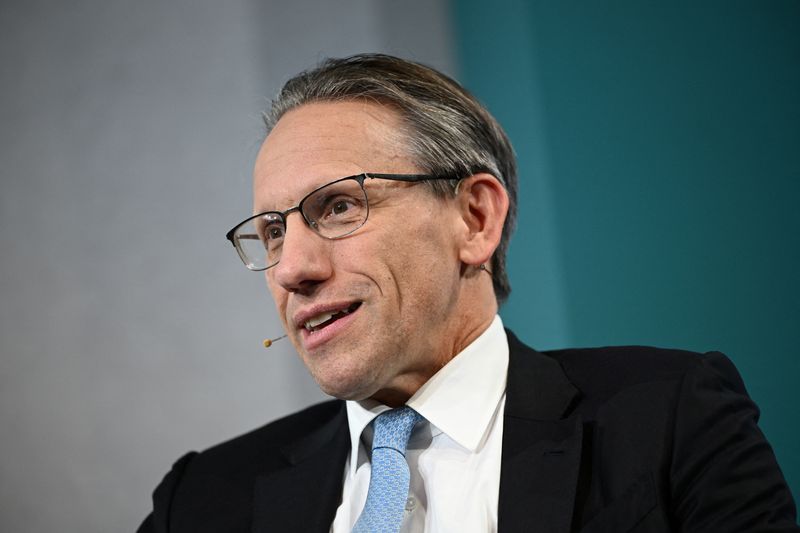By Maria Martinez
BERLIN (Reuters) -New German Finance Minister Joerg Kukies said on Tuesday there will be no budget freeze for this year as a result of the country’s three-way coalition falling apart.
As things stand, the government would be able to get through the year just fine, he said at the Sueddeutsche newspaper economic summit in Berlin.
The opposition Christian Democrats (CDU) and the Free Democrats (FDP) are opposing the government’s supplementary budget for 2024, which was supposed to pass parliament on Wednesday.
“Whether there will be a supplementary budget in 2024 or whether we really need one is not yet clear,” he said in his first appearance as finance minister, touching on many of the questions raised by the coalition’s collapse in his rapid-fire speech.
The break-up came at a critical juncture for Europe’s biggest economy, just hours after Donald Trump won the U.S. presidential election, raising the spectre of a tit-for-tat trade war with Germany’s main trading partner and more economic gloom ahead.
Kukies said funds no longer required to subsidize Intel (NASDAQ:)’s new chip-making plants could be used to cover shortages for this year’s budget. He thanked Economy Minister Robert Habeck, from the Green Party, which backs the chancellor’s now minority government, for his concession.
For next year, Kukies said there would be a provisional budget, as it was unrealistic that the Bundestag lower house of parliament will pass one before the new election on Feb. 23.
“The world will not come to an end,” he said.
Kukies said this was not an unusual practice, although he said implied some projects might not be implemented or could be delayed.
“On the other hand, it can also be stated quite clearly that the federal government can and will pay all the obligations it has,” Kukies said.
PRIVATISATION PROGRAMME
The new finance minister said the German government would continue with its focus on “privatisation after stabilisation”, adding that the government would stick to plans on the re-privatisation of the energy company Uniper, which was rescued during the energy crisis after Russia’s 2022 invasion of Ukraine.
He criticised Italian bank UniCredit’s possible takeover of German state-backed lender Commerzbank (ETR:).
“Taking an aggressive stake in a systematically relevant bank such as Commerzbank, using unfriendly methods and without co-operation, is not an appropriate approach,” Kukies said. “Hostile takeovers are not what we need for stable banks in Europe and in Germany.”
He said a strategy on power plants would have to wait, as it will not make it through parliament before the election, while leaving the door open for it to the next government.
“It is a very important measure to promote the ramp-up of the hydrogen economy, decarbonise our electricity production and make it reliable,” Kukies said.
The new finance minister spoke about the structural problems of the German economy, such as red tape and regulations, and said the government would continue working on passing the measures included in the outgoing administration’s growth initiative to nurture a recovery.
The world’s third-largest economy has lagged the European Union average since 2021 and is expected to shrink for the second year running in 2024, making it the worst performer among the Group of Seven major economies.

The growth initiative includes 49 measures and some of them were expected to be passed in parliament before year-end. The collapse of the coalition has therefore delayed some of these plans, bringing more economic pain in the months ahead.
Kukies said the government would work on passing those laws before the election that were already quite advanced and had the needed consensus for approval.


